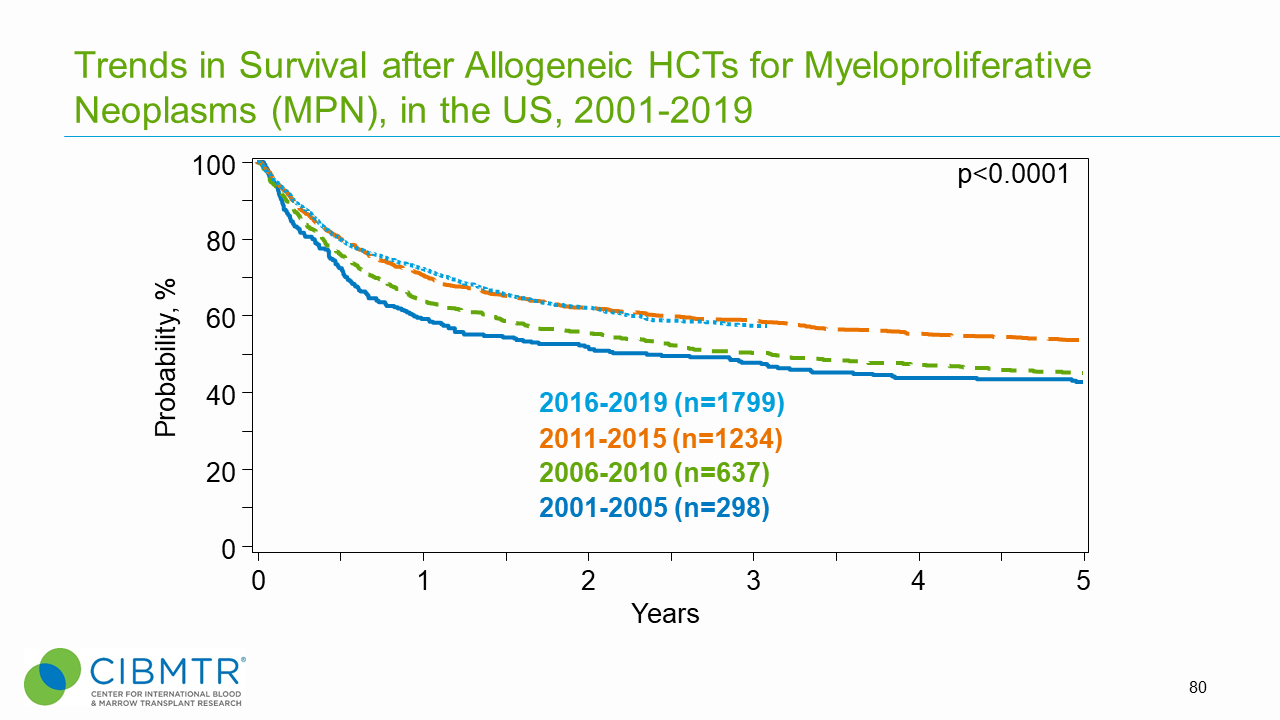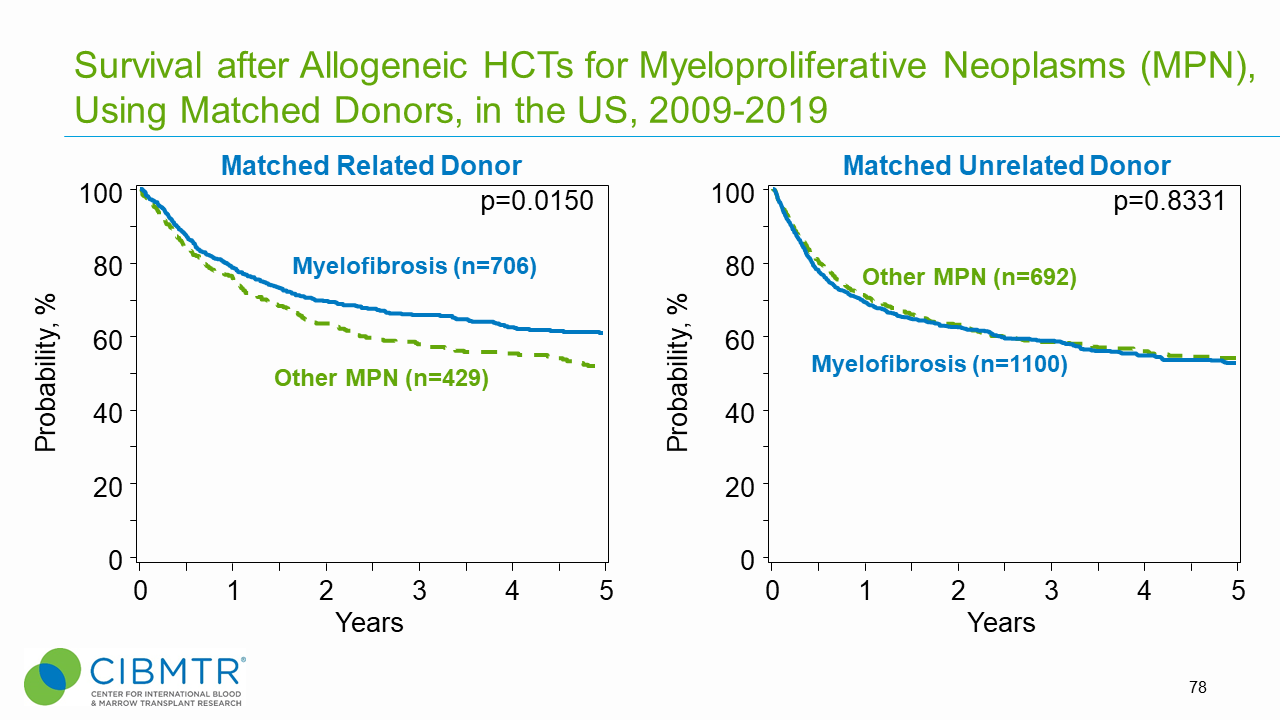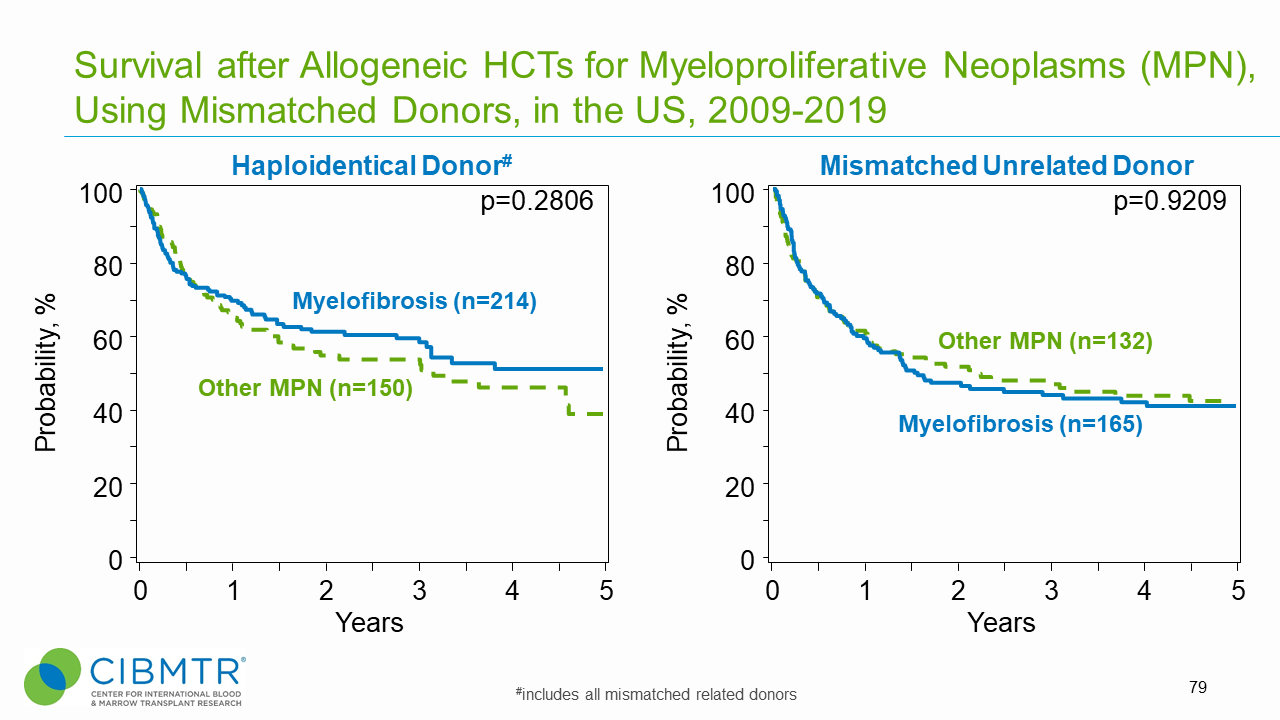Myeloproliferative Neoplasms
Myeloproliferative neoplasms (MPN) are a group of rare disorders, including BCR-ABL-negative myeloproliferative neoplasms, polycythemia vera, and essential thrombocytosis, where diagnosis usually occurs at a young age with a prognosis that depends on disease progression and effectiveness of conservative treatments. MPNs have been treated with conservative strategies over the years, but autologous HCT is an option that can prolong survival. [1-3]
Outcomes
Data in this section have been prepared by the CIBMTR® (Center for International Blood and Marrow Transplant Research®). The CIBMTR is a research collaboration between the National Marrow Donor Program® (NMDP)/Be The Match® and the Medical College of Wisconsin.
Figure 1. Trends in MPN Survival, Allogeneic HCT

Figure 2. MPN Survival, Matched Related and Matched Unrelated Allogeneic HCT

Figure 3. MPN Survival, Haploidentical and Mismatched Unrelated Allogeneic HCT

HCT Consultation Timing Guidelines
The National Marrow Donor Program® (NMDP)/Be The Match® and the American Society for Transplantation and Cellular Therapy (ASTCT) have jointly developed guidelines for transplant consultation and referral timing based on disease characteristics. [4] The National Comprehensive Cancer Network Clinical Practice Guidelines (NCCN Guidelines®) were consulted in developing these guidelines and are a valuable tool in determining risk stratification. [5]
Our guidelines highlight disease categories that include patients at risk for disease progression and who should be referred for a consultation for autologous or allogeneic transplantation. [4]
Transplant Consultation Guidelines: Myeloproliferative neoplasms (MPN)
(Including BCR-ABL-negative MPNs and later stages of polycythemia vera and essential thrombocytosis)
High-resolution HLA typing is recommended at diagnosis for all patients
Intermediate- or high-risk disease, including:
- High-risk cytogenetics
- Poor initial response or at progression
View complete HCT Consultation Timing Guidelines
Clinical Trials Search and Support
The NMDP/Be The Match offers the Be The Match® Jason Carter Clinical Trials Search and Support (CTSS) program, which can provide clinical trial navigation to your patients. The CTSS Program was created to help people with blood cancers or blood disorders and their families find and join clinical trials.
For more information, visit Clinical Trials Search and Support.
References
- Tefferi A. How I treat myelofibrosis. Blood. 2011; 117(13): 3494-3504. Access
- Kröger NM, et al. Indication and management of allogeneic stem cell transplantation in primary myelofibrosis: a consensus process by an EBMT/ELN international working group. Leukemia. 2015; 29(11): 2126-2133. Access
- Deeg HJ, et al. Hematopoietic cell transplantation as curative therapy for patients with myelofibrosis: Long-term success in all age groups. Biol Blood Marrow Transplant. 2015; 21(11): 1883-1887. Access
- NMDP/Be The Match and ASTCT Recommended Timing for Transplant Consultation. Download (PDF)
- National Comprehensive Cancer Network. Myeloproliferative Neoplasms. (Version 3.2022). Access